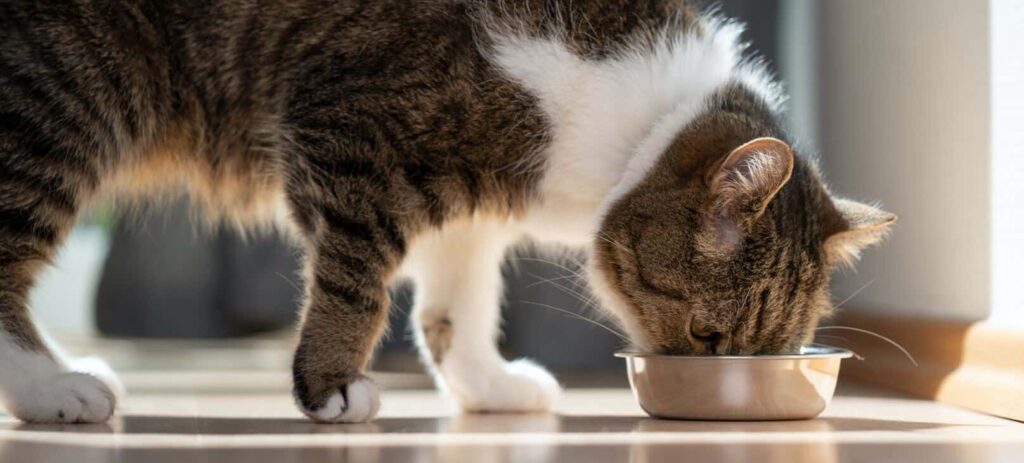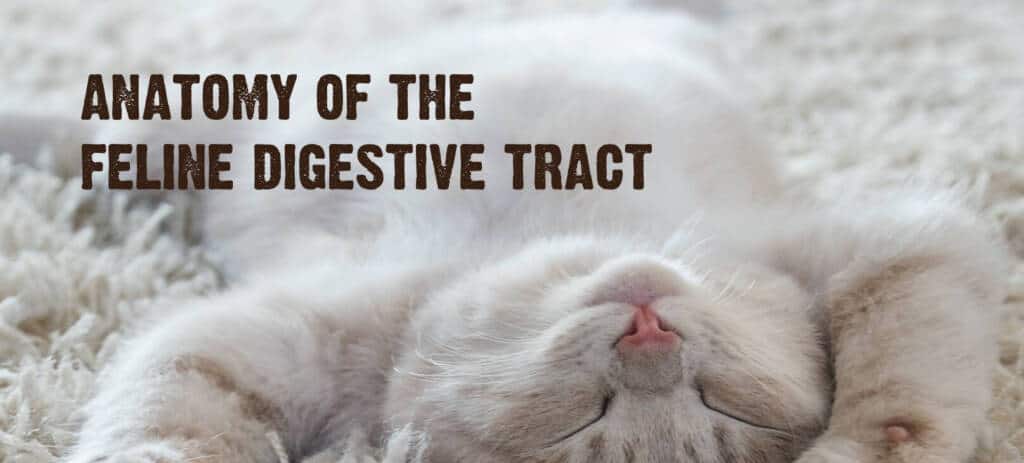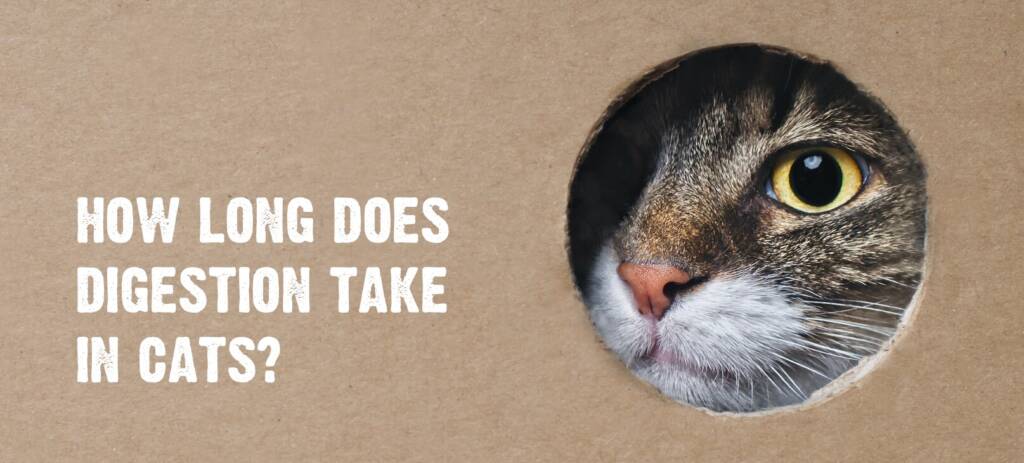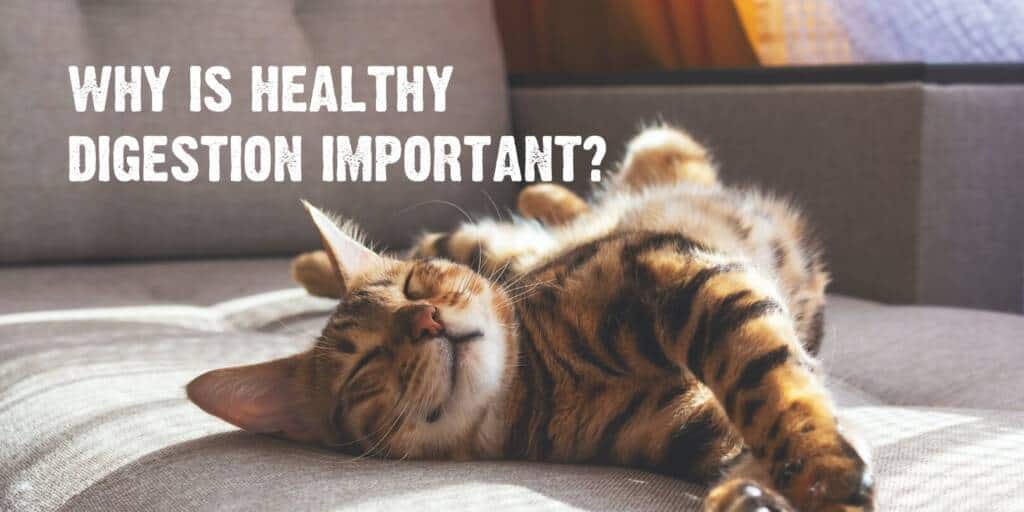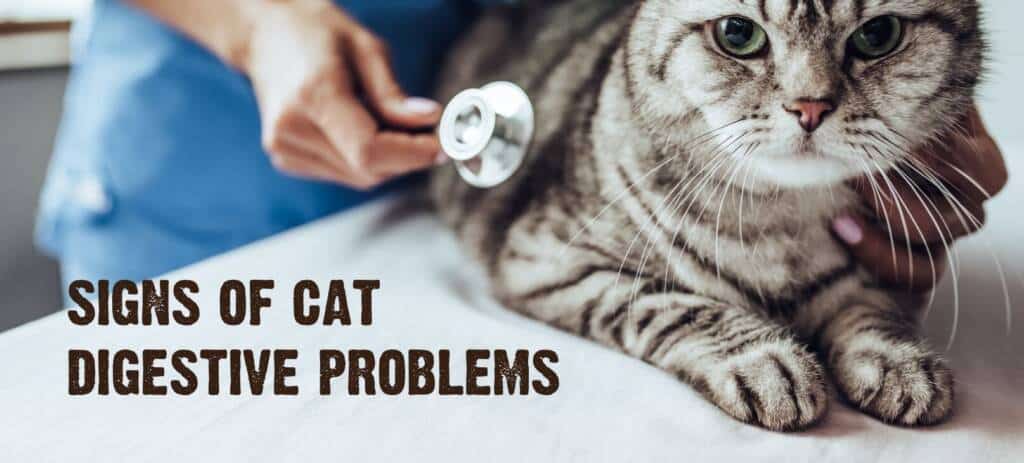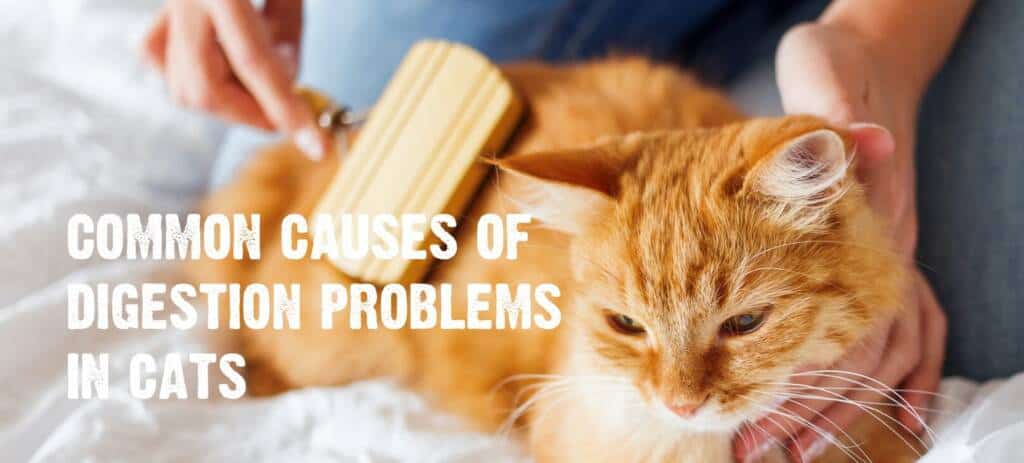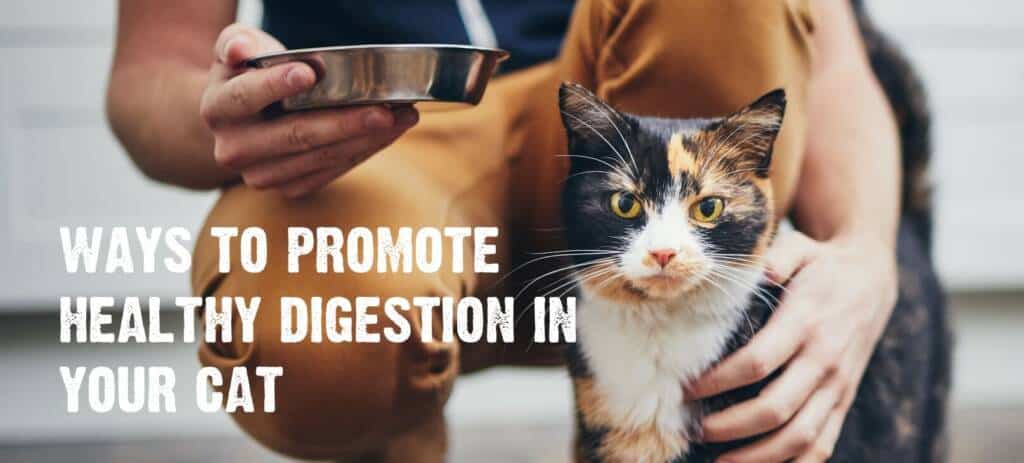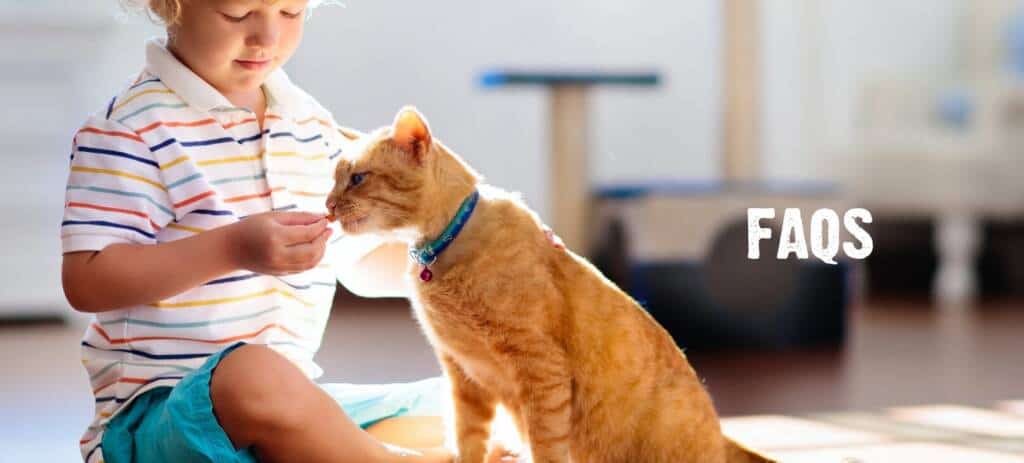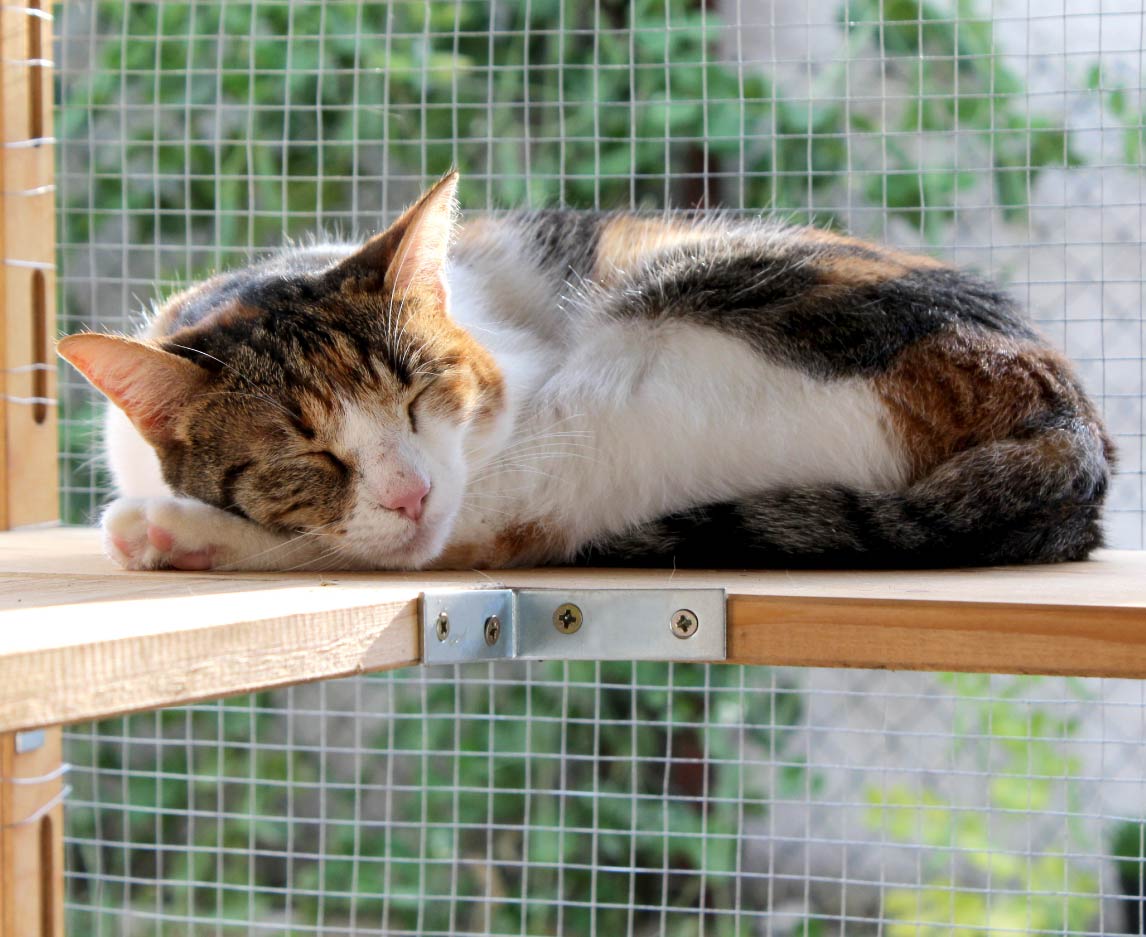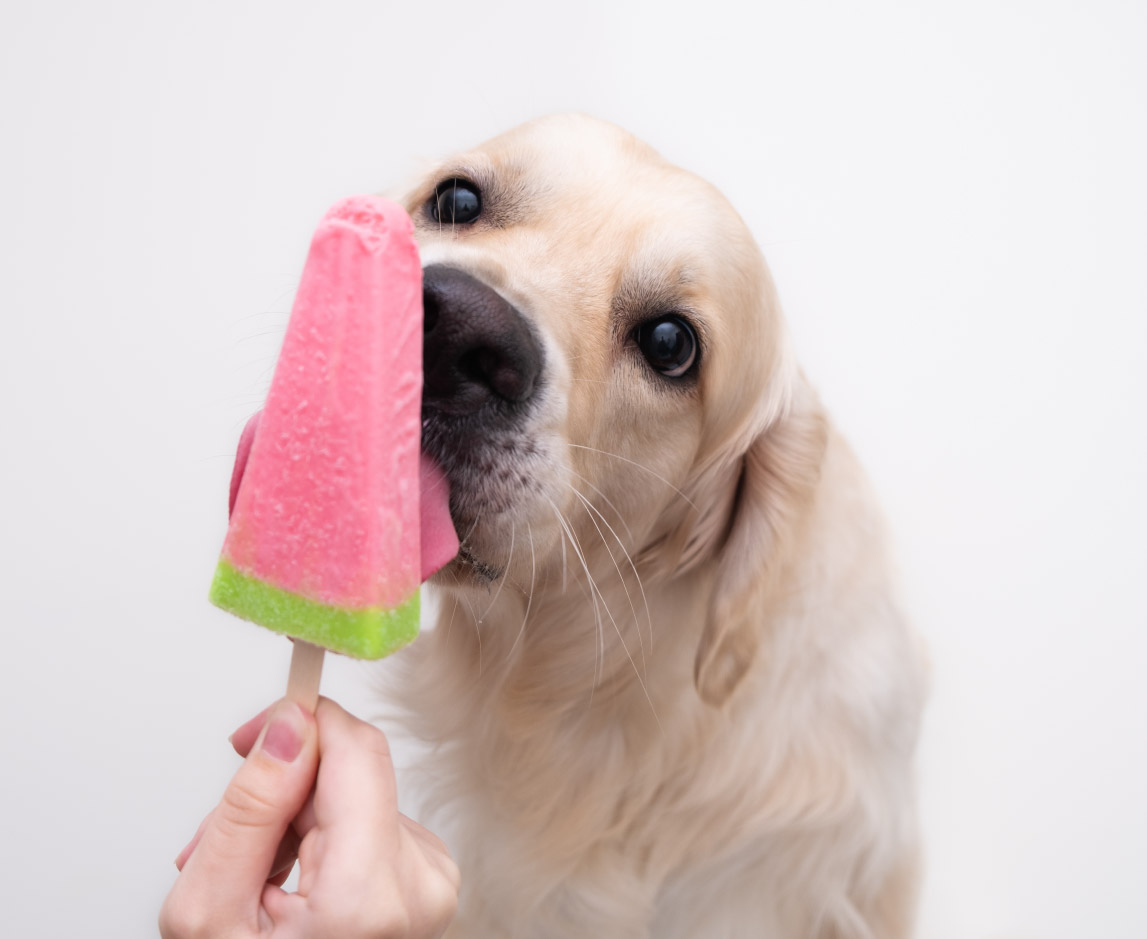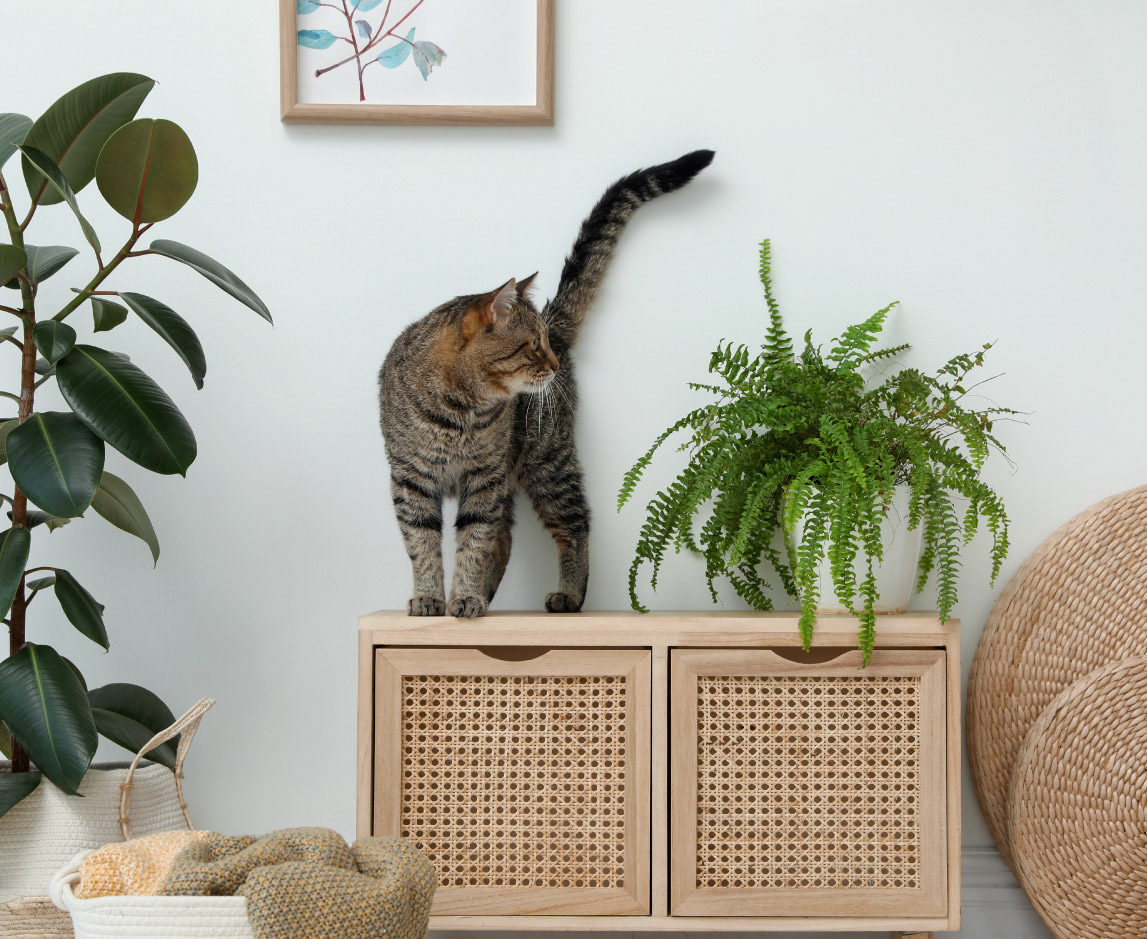Cats’ digestive systems can be hard to understand. Whether you’re trying to please a picky feline palate or identify the source of their discomfort, understanding your cat’s digestive health can help you gauge their overall happiness and physical well-being.
Join us for a detailed look at the digestive system of a cat. Learn to understand the signs and causes of common problems and ways to promote healthy digestion for your furry family member.
Anatomy of The Feline Digestive Tract
To best understand the feline digestive tract, let’s look at the different parts involved and the roles they play when cats eat and digest food.
Mouth & Teeth
The digestion process begins when food enters a cat’s mouth. While their mouths contain three distinct types of teeth (incisors, premolars and molars), cats generally swallow their food in chunks instead of chewing it. Cats rely on their tongue to break food into smaller pieces, which mix with saliva to kick-start a process called mechanical digestion.
Esophagus & Stomach
Chewed food moves from the mouth to the stomach through a hollow tube called the esophagus. The esophagus does not contribute to the breakdown of nutrients but is crucial in transporting food where it needs to go.
The food mixes with strong acids in the stomach and transforms into simpler particles the body can absorb (mainly proteins). Then it’s ground up with gastric secretions and converted into a liquid for the following stage.
Intestines (Small & Large)
The majority of digestion takes place in cats’ intestines. With help from the liver and pancreas, nutrients are absorbed in the small intestine alongside enzymes and water. Then, the large intestine (the colon) absorbs excess liquid and electrolytes, and the remaining waste transforms into feces.
Liver, Pancreas, & Gallbladder
These organs produce enzymes and release hormones that aid the small intestine by helping further break down the food into carbohydrates, proteins and fats.
Anus & Rectum
Feces collect here until cats are ready to dispose of them, completing the digestive process.
Felines are notorious for their low water intake, which can negatively affect digestive health. Providing your cat with minimally processed wet food can aid with digestion and the absorption of nutrients. If your cat prefers dry food, high-fiber options with minimal carbohydrates like meal-free RAWZ dry food are a great alternative.
How Long Does Digestion Take in Cats?
The digestion period starts when food enters a cat’s mouth and finishes when feces release from the anus. In a healthy feline, cat digestion time will take about 20 hours, with some objects like non-food substances lingering longer.
Why is Healthy Digestion Important?
Positive cat digestive health tends to reflect a better overall state of being. Proper digestion ensures cats absorb nutrients from their food, which helps maintain energy levels, repair tissue and promote a healthy metabolism. Healthy digestion also leads to good cat gut health and a strong immune system to help them fight potential infections or diseases.
Signs of Cat Digestive Problems
A digestive problem is anything that interrupts a cat from deriving proper nutrition from its food. Digestive or gastrointestinal issues can arise for various reasons but commonly include lethargy, vomiting, diarrhea, loss of appetite and weight loss.
Let’s explore some of the most frequent problems that occur in cat digestive systems.
Common Causes of Digestion Problems in Cats
There are many reasons a cat may develop a digestion problem. Here are the most common ones.
Foreign Objects
Like young children, curious cats like to put intriguing objects in their mouths. Small or semi-digestible non-food items (e.g., hairballs) often pass through the GI tract without a problem. However, if it gets stuck along the way, a foreign object can cause discomfort, vomiting or a lack of appetite.
Constipation
Constipation occurs when feces are too hard or large to pass through the anus. This can cause irregularity in the digestive system and lead to poor nutrient absorption or a dysregulated appetite.
Parasites
From roundworms transferred to kittens in their mother’s milk to tapeworms and hookworms in adult cats, parasite infections can negatively affect digestion and gut health for cats. If your cat seems dehydrated or is losing weight, a parasite might be the reason. If you discover this is the case, try not to worry but call your cat’s vet as soon as possible. More often than not, medication can help resolve the problem.
Inflammatory Bowel Disease (IBD)
If your cat demonstrates symptoms like vomiting, diarrhea, poor appetite or weight loss, he or she might have Inflammatory Bowel Disease. IBD occurs when a cat can’t properly digest food due to an inflamed or irritated GI tract. This condition is only diagnosable through biopsy, so early detection is key in preventing malnutrition and progressively worsening symptoms.
Cancer
In some cases, symptoms of digestive or gastrointestinal disorders can indicate a more serious issue like cancer. Some cancers, such as lymphoma, grow and disrupt organs in the GI tract and cause digestive problems like weight loss, changes in bowel movements, difficulty swallowing and more. Contact a vet for professional guidance if you think your cat’s digestive problems may mean cancer.
Food Intolerance & Allergies
Cats can have an intolerance to certain ingredients or allergies that trigger problems in the GI tract. If you notice your cat is struggling to digest certain foods without getting sick, try to omit them from your cat’s diet. Consistent vomiting, gas, abdominal pain and diarrhea can cause significant discomfort and insufficient nutrient absorption.
3 Ways to Promote Healthy Digestion in Your Cat
Here are three ways to improve and support your feline’s digestive health.
1. Diet & Nutrition
Cats thrive on meat-focused diets. Limit your cat’s intake of unnecessary carbohydrates like rice and potatoes. These foods are particularly inflammatory. You can also promote better nutrition for your cat with pre and probiotics, which are integral to a healthy diet.
One of the best ways to support your cat’s digestive health is with the right food. If you’re looking to improve your cat’s diet, consider products that are minimally processed and designed to promote cats’ overall health and well-being.
2. Healthcare
The digestive process starts in a cat’s mouth, so pay close attention to their dental hygiene. If oral bacteria grow too abundant, it can lead to chronic inflammation in the gut. Regular brushing, dental toys or treats and regular vet check-ups can help maintain healthy oral hygiene.
On the other hand, antibiotics can lead to the loss of healthy bacteria and a microbiome imbalance in the gut. When antibiotics kill harmful bacteria, they attack beneficial bacteria too. Before giving your pet antibiotics, consult your veterinarian to ensure you’re promoting a healthy balance of digestive bacteria.
3. Lifestyle
As with humans, lifestyle is a significant factor in overall health and well-being. Cats should get plenty of exercise to reduce the chance of obesity and its effects on digestion and the body.
Mental stimulation is important too. Prevent stress with activities that keep cats occupied or ignite their hunting instinct and, if possible, try to encourage outdoor exploration. There are countless benefits, physical and mental, sparked by venturing outdoors.
Now that you understand the digestive system of a cat, you can recognize the signs of poor digestive health and help get your feline back on the right track.
While cats’ sensitive digestive systems are often restored through diet, exercise and perhaps supplementation, don’t hesitate to contact a veterinary professional if you feel a medical intervention is needed.
Remember, good cat digestive health starts with the proper diet and nutrition. If you’re looking for a natural, balanced and complete nutrition source, do your cat a favor and check out RAWZ’s minimally processed options for cats at an independent pet store near you!
Frequently Asked Questions
Q. How often should you feed your cat?
A. There are many factors that determine the frequency with which you should feed your cat, so we’ve deferred to the experts at Cornell University’s Feline Health Center. Keep the following in mind to best promote digestion and keep your cat in good health.
Age: Kittens, mature and senior cats all require different amounts of food. According to Dr. Francis Kallfelz, James Law Professor Emeritus of Nutrition at Cornell University College of Veterinary Medicine, “Growing kittens up to six months of age may require three meals a day.”
From six months to a year, “most cats will do well when fed two times a day.” And, for adult cats around one year or above, “Feeding once or twice a day is appropriate in most cases.”
Health Status: If your cat has an existing health concern, you will need to feed him or her accordingly. “If your cat suffers from a health problem such as diabetes, you may need to feed him based on when he is administered insulin,” says Dr. Kallfelz.
Another common concern is as your cat ages, their dental hygiene or teeth may make it difficult to eat dry food. If this is the case, “offer them canned food or dry in a finer nugget size.” When determining how to adapt your cat’s feeding habits to their health concerns, it’s always advisable to ask a veterinary professional for guidance.
Consistency is Key: Whether you prefer to feed your cats in the mornings or the evenings, it’s best to find a consistent schedule that suits you and your cat. When developing a selected feeding routine, be honest with yourself regarding the cost and time commitment to be sure it can be maintained over time. “You just need to come up with a plan,” says Dr. Kallfelz, “then keep it consistent.”
Q. What’s a fecal microbiota transplant (FMT)?
A. If a cat suffers from poor digestive health, a vet may prescribe an FMT. This will only be performed after a detailed cat digestive system analysis if the feline isn’t responding to traditional remedies.
The costly procedure is done in a veterinary hospital and consists of transferring gut bacteria from a healthy cat to one with an unhealthy gut biome. FMTs require sedation and can cause cats stress, so they are generally reserved for serious cases only.


